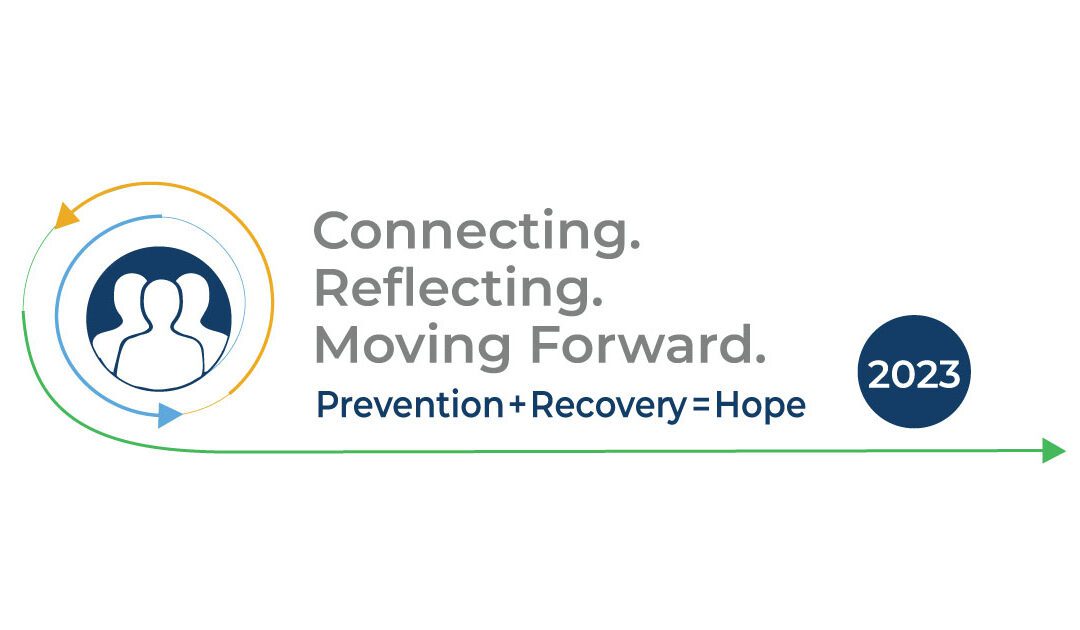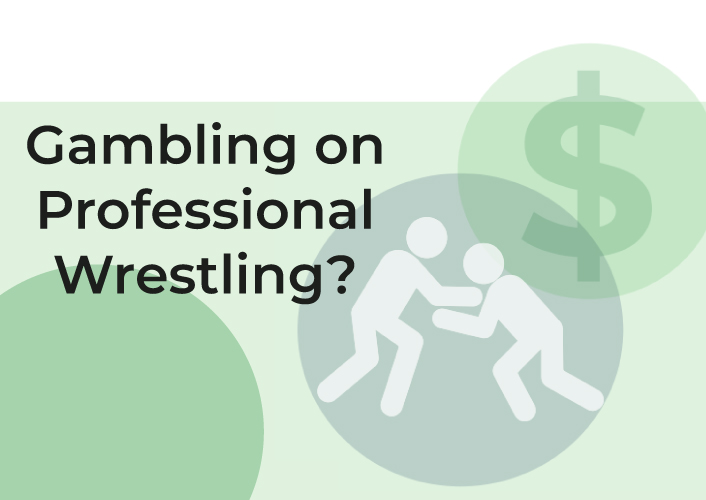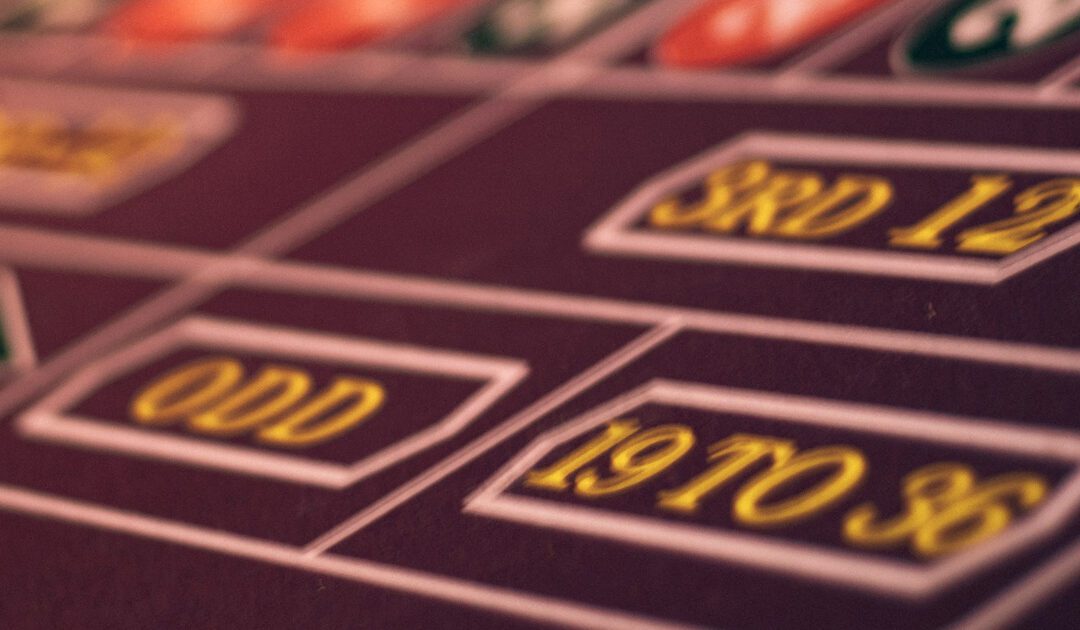
Mar 15, 2024 | PROBLEM GAMBLING
As states and gambling operators grapple with how to best identify gamblers exhibiting possible problem gambling behavior, the need to gather comprehensive, consolidated and anonymous gambler data is becoming increasingly apparent. This is particularly important because an individual’s gambling activity may be spread across a number of platforms and operators (see page 3), making it essentially impossible for an individual operator to obtain a snapshot of a gambler’s total spending.
ID Pair, a New Jersey-based organization whose mission is to create responsible gambling solutions for operators, state regulators and others, is developing tools to analyze the entirety of a gambler’s activity, providing a better opportunity for intervention.
“The task of a sports book is to make sure customers are behaving in sustainable ways,” says Jonathan Aiwazian, CEO and founder of ID Pair. “But how can they do that if they only see a fraction of the data?”
ID Pair performs two fundamental tasks. First, it anonymizes gambler data as it amasses it across gambling operators. Secondly, it runs an analysis on the “single view” of a gambler to identify high-risk behavior, thus allowing operators to send appropriate cautionary communications and reminders to the player.
“Ultimately, it’s a customer’s decision whether to embrace or ignore messages about high-risk behavior, but at least the operator can step in with actions that emphasize long-term health and sustainability,” says Jonathan, who previously worked for several operators and observed that they were limited in what they could see — hence the need for a system to bridge the gap in data from one operator to another.
Jonathan notes that operators have historically been protective of customer data and apprehensive about sharing it. However, he thinks that attitude is thawing in light of the need to cultivate a sustainable customer base. “I think that operators are seeing that it’s actually good for the industry and gives them a way to work together,” says Jonathan.
Europe, which traditionally has been years ahead of the U.S. when it comes to building tools to identify problem gamblers, has imposed regulations to ensure that operators work together. It may be that U.S. gambling operators can avoid the need for heavy regulation if they begin working together.
ID Pair works directly with regulators or operators, depending on the state and where the interest in strengthening consumer protections comes from. “It’s most beneficial when there’s legislative support so that regulators can create rules rather than start from scratch,” says Jonathan. “In states where there’s more backing, there’s more opportunity to do more with advancing responsible gambling.”
As Minnesota continues to consider legalizing sports gambling — along with casino gambling already in place — it’s an opportunity to establish a structure early on. “States just beginning to legalize more aspects of gambling have an early opportunity to create data that will help them understand how legalization is changing behavior, and ultimately inform future policy,” says Jonathan. “Without data, there is no visibility. If states creative incentives for operators to share information, it’s better for everyone in the end.”
For its efforts to promote responsible gambling, ID Pair received the Play Well Award from the Responsible Gambling Council and Flutter Entertainment, FanDuel’s parent company.

Aug 14, 2023 | ABOUT MNAPG, PROBLEM GAMBLING, PROFESSIONALS, RECOVERY
The gambling landscape continues to shift with rapid expansion and responses to regulations that seem insufficient. Those working in prevention, treatment and research need to understand and be responsive to these changes.
The MNAPG conference will feature presenters from across the country and Canada sharing their perspectives as clinicians, financial advisors, people in recovery and researchers. It will be a great way to network with others committed to minimizing the harms caused by gambling disorder and to learn more about recent trends and new tools available for those who need help.
Who Should Attend?
The conference is appropriate for many people, including:
o Gambling, alcohol and drug addiction counselors and therapists
o Other health care and social service workers
o Law enforcement officers
o School and church leaders
o Lawyers and financial professionals
o People in recovery and their families
CEU credits are available from various Minnesota professional licensing boards.
Programs and Speakers
While conference details are still falling into place as of this writing, here are some of the programs and speakers that will be part of the conference:
o Resources and Tools for Financial Counseling in Gambling Disorder Treatment, presented by Cara Macksoud, CEO of Money Habitudes, and Alex De Marco, founder and CEO of MoneyStack, Inc. and GamFin.
o The All-In Podcast Comes to Minnesota!, presented by Brian Hatch, peer recovery specialist for Bettor Choice, and Jeff Wasserman, MPA, JD, ICGC-I, CPRS, judicial outreach and development director for the Delaware Council on Gambling Problems.
o Using Affordability Guidelines as a Tool for Player Protection Online in a North American Context, presented by Lia Nower, J.D., Ph.D., a distinguished professor and director of the Center for Gambling Studies at Rutgers University.
o Working with Clients and Gambling Harms: Why it Matters and How to Lower Resistance to Treatment, presented by Jay Robinson, JR Consulting, an internationally sought-after expert in the field of preventing and responding to gambling harms.
o The Public Health Impact of Sports Betting Expansion, presented by Dr. Timothy W. Fong, M.D., a Professor of Psychiatry at the Jane and Terry Semel Institute for Neuroscience and Human Behavior at UCLA.
What:
MNAPG annual conference
When:
Sept. 18
Where:
Hilton Minneapolis/Bloomington, 3900 American Blvd W., Bloomington, MN
Cost:
$30 (free to those in recovery)
Registration deadline: September 8
For More
Information:
mnapg.org/conference
Register and and learn more HERE.

May 12, 2023 | PROBLEM GAMBLING
The first time I gambled, when I was 18, I considered it simply entertainment. I might spend $20-$40 and go with some friends. It never occurred to me that gambling could become a debilitating addiction.
However, while I was in college, the impact of several events unsettled me. First, my mother’s longtime partner left her, leaving emotional wounds for all of us to deal with. And not long after that, I learned that a young girl who I had mentored died by suicide. I tried to focus and managed to graduate, but I never had a chance to truly grieve these losses while in school.
After graduating, I eventually moved back to Minnesota in 2017 and got engaged. That’s when I started to explore gambling. By the time I got married in July of 2018, I was living a double life with gambling. I remember telling my husband at the time that I felt more married to slot machines than to him.
I had been looking forward to marriage and the opportunity to be part of his family, as I was adopted and longed to be loved and experience a sense of belonging. Unfortunately, although I initially felt accepted by my husband’s family in the beginning, I eventually found it hard to be myself.
All of these struggles — rejection, abandonment, not feeling I belonged or was loved — drove me to gamble as an escape. Gambling offered a “fake happy place” for me to numb my pain and just be. I felt emotions on the outside but had deep pain inside myself. When I gambled, it felt fun, but as time progressed, I was exhausted. I felt like a robot with an altered mind and body
At first, I gambled for just a few hours. But before long, I was gambling for longer periods of time, spending $300-$500 two to three times a month. Things progressed quickly. Within a year, I was losing $1,000- $2,000 two to three times a week.
I would drive to Mystic Lake no matter what the weather was like. As I drove, I’d constantly hear a voice telling me that everything would be fine — but it was hard to numb that voice.
My gambling escalated even more. I spent a lot of my inheritance from my grandparents, approximately half a million dollars in two years
My health started going downhill. I stopped taking important medications and stopped eating, losing 30 pounds over two years. I let go and didn’t care, as if I wanted to die that way.
Well into my addiction my morals became very foggy and distorted. My socializing with friends became more isolating. I lied, I stole from my fiancé, used my inheritance and other forms of getting money (annuities, life insurance), and sold my most prized possessions. In the end, the last things I sold were my flute from childhood and a camera my grandma had bought me. I was desperate and needed money, it was my fix.
I lost my job in December 2019 and had a mental breakdown on January 2, 2020. I knew I wanted to get help and be in a safe place. My mom grabbed my childhood blanket and bear to help comfort me. I told her to take me to the ER. I had suicidal thoughts. I was done living.
I told my mother all about my gambling. She said my eyes were a different color during my breakdown and wanted to protect me from the kitchen knives. Eventually, she got me to a safe place, the hospital. I ended up celebrating my 33rd birthday in the hospital, and my mom, aunt and husband came to celebrate. I never thought I’d be where I was, but I needed to feel safe and heard in a protected environment.
It was during my hospital stay that we found a program for inpatient care for gambling addiction, the Vanguard Center at Project Turnabout in Granite Falls. I went there shortly after leaving the hospital. It was the hardest thing I’ve ever done in my life.
As we drove, I noticed an eagle flying next to the car. For me, it was a symbol of a higher power. I know that a “higher power” can push some people away, but for me it’s about nature
At Vanguard, I learned a lot about addiction in general but also gambling addiction. I related to the 20 questions in the GA yellow combo book and, more and more, realized I did have a gambling problem.
Being in treatment for five weeks, I learned that gambling addiction doesn’t define me, even if it happened in my life. I learned more about how much more pain I had endured in life and its impact on my self-esteem and self-confidence. In treatment, I have a relapse prevention plan, and support has helped me continue to make my recovery number one. I learned how to advocate for myself and what I need, knowing my toolbox of coping skills when things get overwhelming and learning to be kind and gentle to my new self. Recovery is challenging but I tell myself I do the best I can do in that day and give myself credit. It’s truly okay to ask for help. I’m not alone anymore.
Sharing my story is part of the healing I do every day, part of my recovery. I hope that sharing my story can help others and be a reminder that there is help out there.

May 12, 2023 | PROBLEM GAMBLING
The proliferation of gambling — in all its various forms and venues — continues. Hard as it might be to believe, one can bet on events such as weather forecasts, celebrity deaths, ferret bingo, the next pope and the Oscars. And now … wait for it … professional wrestling.
Yes, professional wrestling, where outcomes are scripted in advance. While MNAPG is officially gambling-neutral, it was hard not to cast a questioning glance at the WWE’s (World Wrestling Entertainment) March announcement that it’s looking to have its wrestling matches available for gambling.
Aside from the security issues involved in ensuring that the scripts are not made public until match date — a situation that would seem ripe with temptations for wrestlers to receive payoffs from gamblers under the table — one can also question whether gambling on such outcomes truly constitutes gambling.
The classic definition of gambling is “the wagering of something of value on a random event (chance) with the intent of winning something else of value.” One can question whether the element of chance is truly part of an event where the outcome has been predetermined.
This underscores the fact that gambling is everywhere — and it’s ever-important for those concerned about problem gambling to be on their toes.

Apr 4, 2023 | PROBLEM GAMBLING
The term “addiction” is defined as the state of being compulsively committed to a habit or practice or to something that is psychologically or physically habit-forming, such as narcotics, to such an extent that its cessation causes severe trauma.
Most of us are familiar with certain addictions, even if we may not completely understand them. For example, many of us know the person who can’t stop drinking, the person who can’t stop using prescription medications or the person who can’t stop using illicit drugs.
Yet there are many other addictions, ranging from food addiction to sex addiction to video game addiction. One addiction that’s as real as any but which is under reported in the media, and under recognized and under diagnosed by the treatment community and the general public, is gambling addiction.
This article will show how gambling addiction is essentially similar to other addictions and, indeed, merits the funding, attention and treatment that other, more commonly known, addictions do.
The Addicted Brain
While the range of addictions might seem different on the surface, there are certain fundamental things that they have in common. In particular, the processes that take place in the brain of a person with an addiction are quite similar.
When a person gambles for the first time, they might find it exciting. They might win money and feel on top of their world. This experience registers in their “reward hub” (ventral striatum), which acts like a gas pedal in their car to get them to where they want to go. The “control network” (pre-frontal cortex) works to stop or slow down what they’re doing. When these two areas are working together, the person is in control of their behavior and knows when to stop.
Addiction takes place when these two areas of the brain are not communicating properly. Continuing with the car analogy, an addict keeps pressing on the gas only to learn that the brakes may not work. By the time someone realizes they may have a problem with their gambling, it can be difficult to stop because it’s become a habit. Habits are developed when the brain no longer exercises conscious control. The person is essentially on autopilot. They become very aware of gambling cues and triggers, such as sporting events or casino or lottery advertisements.
At this point, gambling isn’t as fun as it was in the beginning. However, the addicted gambler continues gambling to escape the uncomfortable urges that the triggers create with the hope of recreating the high that they experienced early on in their gambling activities.
As the consequences of one’s gambling get worse, so does their mood. Whereas gambling once had a positive effect on their mood, it now cycles downward. Over time, they find gambling less pleasurable, and their mood continues to get worse, even when no longer gambling.
SEE ALSO From MN DHS: As Sports Betting Goes Mainstream, So Must Problem Gambling Awareness
The brain processes that take place in people with addiction have been borne out by recent studies. Analyses of brain imaging of people with substance addictions and people with gambling problems show that both have less activity in the reward hub than people without addictions when it comes to anticipating rewards.
Over time, they find gambling less pleasurable, and their mood continues to get worse, even when no longer gamblingA person with an addictive brain is operating from the deep limbic brain (the place where emotion and survival are housed) and bypassing the frontal cortex (where logic and reason reside). People with addiction don’t choose for their brains to respond in this way, it’s the demand for dopamine that forges these distorted messages and strengthens these unhealthy pathways in the brain. An addicted brain is literally sending the message of survival when it is seeking another infusion of dopamine.
This means that people with addictions don’t process rewards in the same way. They may not be as excited by natural rewards. They might also have trouble learning how new experiences, such as taking up a hobby for the first time, can be enjoyable. That is why some people might seek out unnatural rewards (like gambling, alcohol, or drugs) just to feel pleasure or to escape.
Addictions hijack the attachment system, meaning that when a person is addicted to something, they gradually grow more detached from their personal relationships and responsibilities. They lose their true selves. Philips Flores, PhD., describes addiction as “a disease of isolation.” As the disease progresses, the gambler prefers to be alone, not wanting anyone to disrupt their “flow,” even if they are in the midst of chasing losses.
The good news is that brains are continually changing. Therefore, the processes that create addiction can be reversed to a varying degree over time. A study published in Neuropsychopharmacology showed that the brains of individuals with substance-based addictions changed in response to non-addiction cues. This means that individuals recovering from an addiction can start to enjoy natural rewards again. However, because these changes can take time to occur, it emphasizes the importance of continuing to practice previously enjoyable hobbies, to try out new activities in new settings, and to be around those who engage in positive behaviors. For those who choose recovery, it’s a journey that includes breaking from addictive habits and learning to reconnect to people and activities that will promote wellbeing, satisfaction, and joy.
Given the time it takes to build new brain processes—and a lasting recovery—individuals should consider the importance of cultivating healthy responses to non-gambling rewards. This can help protect them from the dangers of cross addiction and relapse, and create a rich, meaningful, and rewarding life over the long term.
Similar, But Not Equal
Given the similar processes involved with all addictions, it’s not surprising that some individuals “switch” from one type of addiction to another (also known as substitution or cross-addiction). For example, when a person stops drinking, he may find himself smoking more cigarettes, binging on certain foods, or gambling excessively. This unfortunate occurrence can occur because of reduced activity in the reward hub and their ability to “brake,” making a person vulnerable to other unhealthy rewards to satisfy urges. The result could be a new pattern of repeated rewarding behavior that steals one’s attention, opening the door to a new addiction.
With recent technological advancements, brain scans clearly show the commonalities of substance addiction and gambling addiction. In fact, it was in 2013 when the DSM-V (Diagnostic and Statistical Manual for Mental Health Disorders) finally recognized gambling as a peer addiction to substance addiction.
Given the similarity of the underlying process involved with all addictions, it’s logical and necessary for gambling addiction to be viewed through the same lens as substance use addiction. Fundamentally there should be appropriate and commensurate support in the form of funding. Unfortunately, funding for gambling treatment and prevention is a mere pittance of monies spent on treatment and prevention of alcohol and substance abuse.
In the U.S., substance use disorders are about seven times more common than gambling disorders, yet public funding for substance use treatment is about 338 times greater than public funding for problem gambling services. There are no federal funds for gambling disorder; all funds are provided by the states.
In Minnesota, there are no prevention materials on gambling addiction in the schools. While services offered to those seeking substance use treatment include opportunities to meet with certified peer recovery specialists, no such service is provided for problem gamblers. Minnesota has county-operated behavioral health clinics, yet they don’t offer services for problem gambling, nor is any screening for gambling addiction available. These clinics receive most of their funding from the federal government and adhere to federal regulations. While these clinics promote themselves as one-stop shops for all mental health and substance addictions, they do a significant disservice to those who may have gambling co-addictions by not screening for this disorder.
Reforms are needed for Minnesota’s approach to gambling addiction. Part of the mission of the Minnesota Alliance on Problem Gambling (MNAPG) is to advocate for parity of services and increased funding, along with educating the general public and treatment community that gambling addiction is very real.
An Equal Opportunity Addiction
Gambling addiction doesn’t discriminate by race, gender, socioeconomic status, culture, or age. Treatment for this often-devastating addiction is available — and it works. If you know of someone in your life who may be exhibiting signs of gambling addiction, let them know that help is available at no cost. Referrals are available through the Minnesota Problem Gambling Helpline at 1-800-333-HOPE (4673). MNAPG’s website has a wealth of information and resources on gambling addiction.

Feb 8, 2023 | PROBLEM GAMBLING, RECOVERY
When you find yourself up at 2 a.m. betting on Chinese league basketball games, something you know nothing about, you have to realize that maybe you’ve got a gambling problem.
My relationship with gambling started when I was young. I remember playing cards with my uncle when I was nine or ten years old. At that time, poker was all over television, with ESPN broadcasting various poker tours. I found a website where I could play online for practice, and I spent many hours doing that.
By the time I was 14, I was staying up until four or five in the morning playing poker with my parent’s credit cards. My gambling progressed, and when I moved out on my own, I thought that maybe I could gamble all the time.
But by the time I was 18, I ended up in Gamblers Anonymous (GA). It was at a church and there were only two people there. At the time, it didn’t feel like the place for me. I had a full college scholarship for chess and figured I’d grow out of gambling. Unfortunately, I only lasted three months in college, and when I lost my scholarship, I lost some of my identity. I continued to gamble and also found substances as a way to try to keep gambling away.
There was a lot of pain and suffering between age 19 and 25. Although I visited GA again in 2013, I was very stubborn and didn’t stick with it. I got sober when I was 25 but didn’t give up gambling. By that time my income was substantially higher and my bets were larger. I also got involved in illegal activities to sustain my gambling.
In 2021, I had a substantial win and thought that would change everything. But, of course, it didn’t. I found myself sick and tired of being sick and tired. This time, my involvement with GA feels different. I’m more committed, have sponsors, chair meetings and go every week. While treatment centers may work for some (I went to the Vanguard Center for Gambling Recovery in Granite Falls as well as to a gambling treatment center in Florida), I’ve found that GA works best for me.
It’s now been eight months since I gambled. I’m very happy now. I have a great job and great friends. I’m back together with my girlfriend, who has been through a lot with me.
As someone who got into heroin at one point, I can honestly say that the high from gambling was greater than that of heroin. It is the hardest of the addictions. It’s easier to lie
to think you can win something. With drugs and alcohol, you won’t win anything, but with gambling, you can trick yourself.
To those who are struggling with gambling and wondering what to do, I would say this. Nobody accidentally finds their way into a GA meeting. If you think you’re having an issue, you more than likely do. But there’s help out there. There are a lot of different meetings and a lot of people are willing to help you. The environment is very welcoming and nonjudgmental. I realize now that the age factor — my being younger than many in GA — was simply a copout.
But I do think there’s a need for more GA meetings focused on young people, particularly now there are likely more younger people gambling because of the easy access. It can be difficult when you look around and see that most of the other meeting attendees are older. For this reason, I’ve worked to create a “young persons” GA meeting. My hope is that it will help others like myself.
Page 5 of 14« First«...34567...10...»Last »






